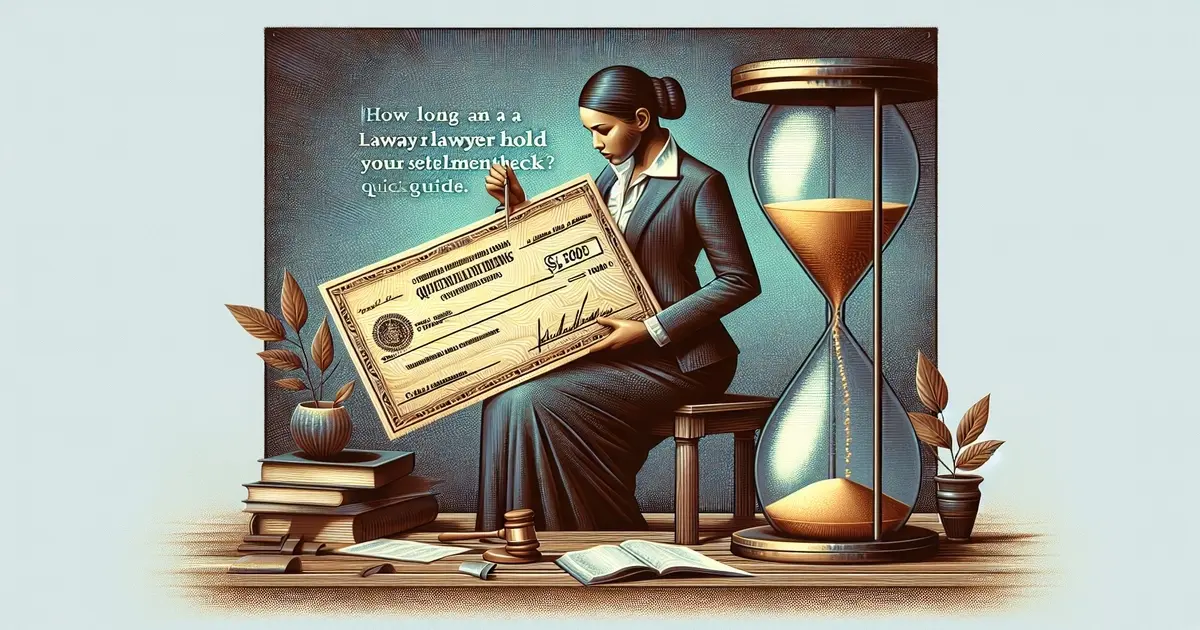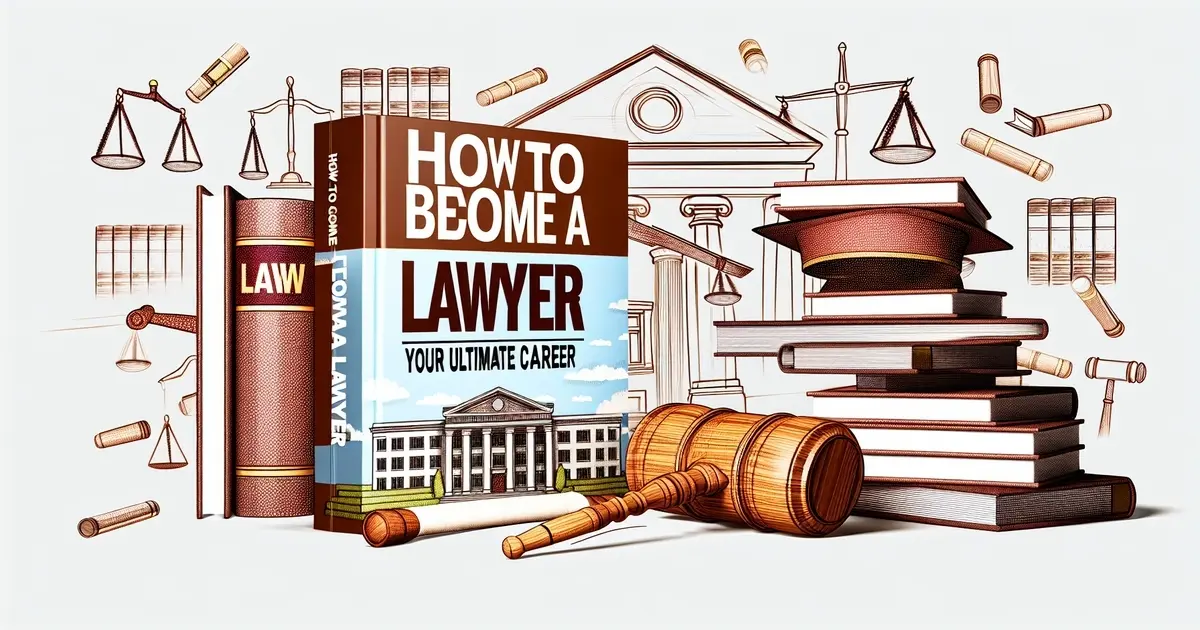Can You Change Lawyers in the Middle of a Divorce? Key Insights
Nearly 50% of marriages in some regions end in divorce, and amidst this emotional whirlwind, realizing your legal representation in family law isn't meeting your expectations can add to the stress. Yes, you can switch lawyers during divorce—it's your right. The notion might seem daunting; after all, who wants to stir the pot when it already feels like boiling over? But here's the deal: ensuring you have the right advocate by your side is crucial for navigating through this challenging chapter of life. Your peace of mind and future depend on it. So, let's dive into how making that bold move might just be what you need to turn the tide in your favor.
Table Of Contents
Understanding the Right to Change Divorce Attorneys
Legal Rights
Every client has the legal right to change lawyers at any point during their divorce proceedings. This decision is crucial and should not be taken lightly.
You are entitled to representation that meets your needs and expectations. It might be time for a change if you feel your current attorney needs to provide the support or results you require. Remember, this is about what’s best for you and your future.
Personal Needs
Your personal needs play a significant role in deciding whether to switch attorneys. Consider factors like communication style, availability, and strategy alignment.
Dissatisfaction can grow if there's a mismatch between what you require and what your lawyer offers. For example, frustration may arise if timely updates are essential to you, but your attorney needs to communicate more. Your lawyer must understand and respect what matters most to you in this process.
Case Progress
Evaluating case progress is another critical aspect when considering a change in legal representation. Sometimes, cases stall or don’t move in the direction clients hope for for various reasons.
- Lack of progress
- Disagreements on strategy
- Unmet expectations
These issues might signal it's time for a new perspective on your case.
Fresh Perspective
A new attorney can bring fresh ideas and strategies that could make a difference in how your case unfolds.
Bringing someone new into the mix often allows one to re-evaluate the existing approach toward achieving desired outcomes. A different perspective might identify overlooked opportunities or alternative paths forward.
Evaluating the Need for a New Divorce Attorney
Expertise Alignment
When considering changing lawyers during a divorce, evaluating your current attorney's expertise is crucial. Your lawyer should have knowledge and experience that align with the complexities of your case. If you find their expertise lacking, this might be a solid reason to look elsewhere.
For instance, if your divorce involves complex financial assets or international custody issues and your current lawyer primarily deals with straightforward cases, they might not be the best fit. It’s like needing surgery and going to a general practitioner instead of a surgeon. The mismatch can impact the outcome significantly.
Strategy Shift
Sometimes, as your case progresses, you may realize a different strategy is necessary. If settling is the best course, this could mean needing someone more aggressive or skilled in negotiation.
Imagine playing chess but realizing halfway through that you've been too defensive when an offensive strategy would serve you better. In such instances, changing lawyers can give your case the fresh perspective it needs for success.
Availability & Responsiveness
Another critical factor is assessing how available and responsive your attorney is to your needs. Communication is vital in any legal process; feeling ignored or sidelined by your lawyer can add unnecessary stress during an already challenging time.
If calls go unanswered or emails sit without replies for days, these are red flags. You want someone on your team who makes you feel heard and valued—not just another file on their desk.
- Pros of evaluating need:
- Ensures alignment between lawyer’s skills and case complexity.
- Allows strategic shifts that could favorably impact outcomes.
- Promotes better communication and support throughout proceedings.
- Cons:
- Finding and transitioning to a new attorney might delay proceedings.
- Could incur additional costs.
By considering these factors—expertise alignment, need for a strategic shift, availability—and weighing them against potential drawbacks such as delays or extra costs—you'll be well-equipped to decide whether changing attorneys mid-divorce will benefit your situation.
Remembering why we discussed "Understanding the Right to Change Divorce Attorneys" earlier helps put this evaluation into context: knowing it's possible empowers you, but understanding when it's beneficial ensures you're making changes for all right reasons.

Signs It's Time to Change Your Divorce Attorney
Communication Gaps
It might be time for a change if you're constantly left in the dark. A reasonable attorney should keep you updated on your case. If calls or emails go unanswered, consider this a red flag.
It's not just about getting responses but also about how quickly and thoroughly they come. If days pass without words or answers are vague, this indicates a problem. You deserve prompt and clear communication.
Billing Issues
Another sign is trouble with billing or expenses. An attorney must provide detailed invoices explaining charges. If your bills need clarification or there seem to be unexpected fees, it's time to ask questions.
Sometimes, discrepancies arise from misunderstandings that can be cleared up quickly. But if explanations need to be more satisfactory or issues persist, this could indicate deeper problems with transparency and trustworthiness.
Lack of Progress
Do you need help? Lack of progress in your divorce proceedings is frustrating and costly. Every case has its pace, but being wholly stalled is different.
A lack of strategic direction might be the culprit behind slow movement. Your lawyer should have a plan tailored to your situation’s needs and goals.
Addressing Communication Issues with Your Current Attorney
Candid Conversation
Initiating a candid conversation with your current lawyer is crucial. It's the first step towards addressing any communication issues you're facing. Explain clearly what your expectations are regarding updates and responses.
Often, lawyers handle multiple cases simultaneously. They might need to realize that their communication frequency doesn't meet your expectations. By discussing this openly, you give them a chance to adjust their approach.
Documentation Efforts
Document all attempts to resolve these issues. This could include emails requesting updates or calls to the office requesting information about your case file.
This documentation serves two purposes:
- It provides evidence of your efforts should you decide to change lawyers.
- It helps identify patterns in the communication breakdowns, making it easier to address specific concerns.
Systemic vs. Isolated
Determine if the issue is systemic or an isolated incident. Sometimes, a missed call or delayed email response can be due to unforeseen circumstances and does not reflect overall poor communication practices by your attorney.
However, if you notice ongoing delays in responses or the need for communication clarity, it may indicate systemic problems in how the lawyer manages client relations. In such cases, changing lawyers might be necessary to ensure adequate representation during divorce proceedings.
Dealing with Disagreements on Divorce Strategy
Express Concerns
Expressing your concerns is crucial. If you need clarification on the strategy your lawyer suggests, speak up. You must be on the same page regarding how to proceed with your divorce case.
When discussing these concerns, describe what makes you uncomfortable and why. A reasonable attorney will listen and address your worries, perhaps adjusting the plan or explaining their reasoning more thoroughly. Remember, this is about ensuring you feel confident in how your divorce proceedings are handled.
Seek Second Opinion
If doubts persist after talking to your lawyer, seeking a second opinion might help. This doesn't mean you mistrust them; getting another professional perspective can clarify.
Consulting another legal expert can give insight into whether the proposed strategy aligns with standard practices for achieving desired outcomes in divorce. Sometimes, hearing similar advice from multiple sources can reassure you that the current approach is sound.
Reconcile or Change
Deciding whether disagreements are reconcilable involves weighing several factors:
- Are my concerns based on a misunderstanding?
- Can I trust my lawyer’s expertise?
- Is this disagreement significant enough to warrant a change?
If answers lean towards no reconciliation possible, it may be time to consider changing lawyers mid-divorce process.
Changing lawyers isn’t simple, but it is sometimes necessary for peace of mind and better representation. Ensure any decision is well-informed by reflecting deeply on the reasons behind wanting a change.
Transitioning to a New Divorce Attorney Safely
Secure Documents
Before making any moves, it's crucial to gather all case documents. This step ensures you're prepared and informed about your case history.
Start by requesting copies of all legal documents from your current attorney. These include filings, correspondences, and court orders. Having these records means you can provide comprehensive background information to any new lawyer you consider hiring.
Next, organize these documents carefully. A well-organized file can save time and help the new attorney understand your case quickly.
Choose Wisely
Finding an attorney with experience with transitioning cases mid-way is essential for a smooth changeover.
Research potential lawyers thoroughly before deciding on one. Look for reviews or testimonials from previous clients who switched attorneys during their divorce proceedings. Their experiences can offer valuable insights into how effectively the lawyer handles such situations.
Interview several attorneys before making your choice. Ask them about their experience with cases like yours and how they plan to approach the transition period.
Avoid Conflicts
Ensuring no conflict of interest with the new attorney is critical for maintaining ethics and legality in your representation.
Firstly, disclose all involved parties' names to check against the potential attorney’s client list. This step prevents conflicts that could disqualify them from representing you.
Secondly, discuss openly any concerns or specific issues that led to changing lawyers in the first place. Transparency helps avoid repeating past problems with your new representation.
Preserving Attorney/Client Privilege During the Transition
Confidential Discussions
When changing lawyers during a divorce, keeping your conversations private is vital. Talk about confidentiality with both your current and new attorney. This ensures that sensitive information remains protected.
It would be best to be transparent about what you share until the new lawyer officially takes over. Limiting discussions about your case or personal matters during this period is best. Be extra careful with emails or messages that might contain confidential info.
Document Transfer
Transferring documents between attorneys should be direct. This method helps maintain privacy and speeds up the process. Ask your current lawyer to send files directly to your new one.
Ensure all essential papers are transferred safely. These include court filings, agreements, and personal records relevant to your case.
Communication Caution
Until the change is official, watch what you communicate. Avoid sharing sensitive details with others outside of your legal team. Even casual remarks can sometimes impact your case negatively.
Remember, attorney-client privilege may not protect anything shared with a prospective client before formal representation.

Managing the Implications of Changing Lawyers Mid-Divorce
Potential Delays
Changing lawyers during a divorce is about more than just hiring someone new. It often means there will be delays. Your new lawyer needs time to understand your case thoroughly. They must review all documents and get up to speed.
This can slow things down, especially if your case is complex. The court may need to reschedule hearings or deadlines. This gives your new legal team time to prepare appropriately.
Additional Costs
Switching legal representation can also lead to extra costs. You might have already paid your previous lawyer for their work. You'll need to pay another lawyer to take over and catch up.
Your new attorney may charge for reviewing past work and strategizing anew. This could increase the overall cost of your divorce process significantly.
Communicating Changes
Please promptly inform the court and other relevant parties about changing lawyers. This keeps everyone on the same page and helps avoid confusion or delays.
You should submit a formal notice to the court as soon as possible. Also, let others involved in your case know—like your spouse's attorney—to ensure smooth communication.
Reassessing Timelines
With a new lawyer, it’s essential to reassess timelines and strategies for your divorce proceedings. Discuss how this change might impact key dates like hearings or mediation sessions. Work together on adjusting these plans according to what's realistic now that there has been a change in legal representation.
Here are some steps you can follow when changing lawyers:
- Confirm with your current lawyer that all necessary information will be transferred smoothly.
- Ensure clear communication lines with old and new lawyers during this transition period.
- Discuss any concerns regarding timelines or strategies directly with your new attorney.
Remember, while changing lawyers mid-divorce can introduce challenges such as potential delays and additional costs, effective communication, and careful planning can help manage these implications successfully.
Navigating the Transition Process Without Jeopardizing Proceedings
Avoid Rash Decisions
Making hasty choices during a lawyer transition can harm your case. Wait before agreeing to anything significant. This caution ensures that no premature decisions affect the outcome of your divorce.
It's tempting to rush settlements or agreements to speed up the process. However, quick decisions might not serve your best interests in the long run. Patience is critical during this delicate phase.
Document Everything
Keeping track of all interactions and documents exchanged is crucial. This record-keeping helps you and your new attorney understand what has happened.
Make sure to document:
- Emails and phone calls with dates.
- Court notices and filings.
- Settlement offers received or made.
This detailed documentation assists in picking up where things left off without missing a beat. It also allows clarity about past communications or agreements made before the change.
Collaborate Closely
Working closely with your new lawyer is essential for a smooth transition. Share all relevant information and documents from day one. A strong partnership ensures they can represent you effectively in court.
Discussing expectations, goals, and concerns early on sets a clear path forward together. Your attorney needs complete insight into your situation to advocate for you properly.
Closing Thoughts
Deciding to switch divorce attorneys mid-journey might feel like rerouting in a storm, but it's your right—and sometimes, your best move. You've seen the signs, understood the implications, and learned to switch without capsizing your case. Remember, this is about securing your peace of mind and ensuring you're on the right path. It's not just about changing lawyers; it's about reaffirming your commitment to steering your life toward calmer waters.
So, take a deep breath. It may be time to consider a change if you're feeling stuck or unheard. Trust your gut. Seek an attorney who resonates with your needs and values and will fight tirelessly in your corner. Let's not forget that navigating through divorce is tough, but you're tougher. Ready for a smoother sail?
Frequently Asked Questions
Can I change lawyers in the middle of my divorce for better advice, and does this question need a judge's approval in the courtroom?
You have every right to switch attorneys if you feel it's necessary for your case. It’s like changing pilots mid-flight: tricky but doable with the right approach.
How do I know it's time to change my divorce attorney for better legal advice and courtroom representation as a prospective client?
If your attorney isn’t communicating well, disagrees with your strategy without a solid reason, or you no longer click, it might be time for a new co-pilot on your legal journey.
What advice should clients start with first if I decide to become a prospective client looking to change lawyers?
Talk to your current lawyer about your concerns. Sometimes, clearing the air can fix things. If not, look for a new attorney who better aligns with your needs and goals.
Will changing attorneys affect my divorce proceedings?
It could cause some delays as your new lawyer gets up to speed. But think of it as taking a brief pit stop to ensure you’re racing towards the finish line in the best possible car.
How can I transition to a new attorney without losing ground in my case, seeking law advice for clients in the courtroom?
Ensure all relevant documents are transferred securely and communicate openly with old and new lawyers about the transition process. It’s like passing the baton smoothly in a relay race.
Under the law and agreement between parties, is my information still protected by attorney/client privilege during this switch?
Yes! Your secrets stay safe. The privilege sticks with you and transfers seamlessly from one lawyer to another, ensuring no leaks during handoff.
What are some potential drawbacks of switching lawyers mid-divorce, including courtroom confusion and file transfer issues?
The main risks include increased costs and potential delays while your new lawyer catches up on details. However, these bumps can be worth navigating if it means having representation that genuinely understands and advocates for you.
Related Post
What Does a Lawyer Wear?
Did you know that 75% of people form their first impression of a lawyer based on appearance, impacting judges and the justice system?
Read MoreWhat Happens If a Lawyer Loses a Case
Have you ever wondered about the ripple effects when a lawyer or attorney doesn't win in court, especially under a contingency fee arrangement or contingent fee with the jury involved?
Read MoreWhat Are the Highest Paid Lawyers?
Have you ever wondered why some lawyers in their legal career, specifically big law investors, drive luxury cars while others seem to scrape by with their jobs and money?
Read MoreHow Do Pro Bono Lawyers Get Paid?
Have you ever wondered how lawyers, often working for nonprofit organizations or on contingency fees, keep the lights on while providing free legal services for disability cases?
Read MoreHow Long Can a Lawyer Hold Your Settlement Check?
Have you ever wondered why getting your hands on your settlement check feels like forever, with money sitting in trust accounts, balancing client trust?
Read MoreHow to Become a Lawyer
Did you know that there are over 1.3 million active attorneys in the United States alone, including law students from law schools and those in law firms practicing law?
Read More






